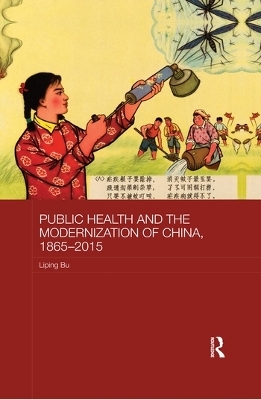
Public Health and the Modernization of China, 1865-2015
Routledge (Verlag)
978-0-367-36162-4 (ISBN)
This book, based on extensive original research, traces the development of China’s public health system, showing how advances in public health have been an integral part of China’s rise. It outlines the phenomenal improvements in public health, for example the increase in life expectancy from 38 in 1949 to 73 in 2010; relates developments in public health to prevailing political ideologies; and discusses how the drivers of health improvements were, unlike in the West, modern medical professionals and intellectuals who understood that, whatever the prevailing ideology, China needs to be a strong country. The book explores how public health concepts, policies, programmes, institutions and practices changed and developed through social and political upheavals, war, and famine, and argues that this perspective of China’s development is refreshingly different from China’s development viewed purely in political terms.
Liping Bu is a Professor of History at Alma College, Michigan, USA.
List of illustrations
Acknowledgments
List of abbreviations
Primary sources
Introduction: modernization and public health
1 Public health: a modern concept of national power
Introduction
From salubrious cities to polluted treaty ports
Hygiene and public health: a divide of foreigners and Chinese
Missionaries and Western medicine
The Boxer Uprising, public health and modern reforms
Social Darwinism and national strength
The Manchurian plague and national sovereignty
Modern prevention measures and traditional social customs
Public health and Western medicine
Health education campaigns: public health and national strength
Government policy, modern medicine, and public health
Conclusion
Notes
2 Science, public health and national renaissance
Introduction
The science society of China and the new culture of science
Medical and social understanding of the human body
Peking Union Medical College: an American outpost of medical science in China
1917–1918 plague: epidemic prevention and popularization of science
John B. Grant and the training of public health professionals
Sanitary control, vital statistic collection,and tensions in the community
Maternal care and midwifery training
Health stations in urban and rural China
State medicine and national health
Conclusion
Notes
3 Building a modern health system: GMD’s state medicine and CCP’s people’s health, 1920s–40s
Introduction
Part I: GMD’s state building and health modernization
Part II: Health development at CCP revolutionary bases
Conclusion
Notes
4 People’s health and socialist reconstruction
Introduction
Laying the foundation: national health policies and tasks (1949–1953)
Patriotic Health Movement, literacy, and scientific socialist reconstruction
Uniting Chinese and Western medicines: a difficult road in the 1950s
Healthcare in urban and rural China
Rural health and barefoot doctors during the Cultural Revolution
Disease control and social transformation: cases of anti-tuberculosis and anti-malaria campaigns
Conclusion
Notes
5 Economic reforms and new healthcare
Introduction
Marketization of economy and the collapse of socialist healthcare
Government efforts to reform and re-build the health system
Conclusion
Notes
Index
| Erscheinungsdatum | 02.09.2019 |
|---|---|
| Reihe/Serie | Routledge Studies in the Modern History of Asia |
| Zusatzinfo | 4 Tables, black and white; 11 Halftones, black and white; 11 Illustrations, black and white |
| Verlagsort | London |
| Sprache | englisch |
| Maße | 156 x 234 mm |
| Gewicht | 590 g |
| Themenwelt | Medizin / Pharmazie ► Gesundheitswesen |
| Studium ► Querschnittsbereiche ► Prävention / Gesundheitsförderung | |
| Sozialwissenschaften ► Soziologie | |
| ISBN-10 | 0-367-36162-0 / 0367361620 |
| ISBN-13 | 978-0-367-36162-4 / 9780367361624 |
| Zustand | Neuware |
| Haben Sie eine Frage zum Produkt? |
aus dem Bereich


